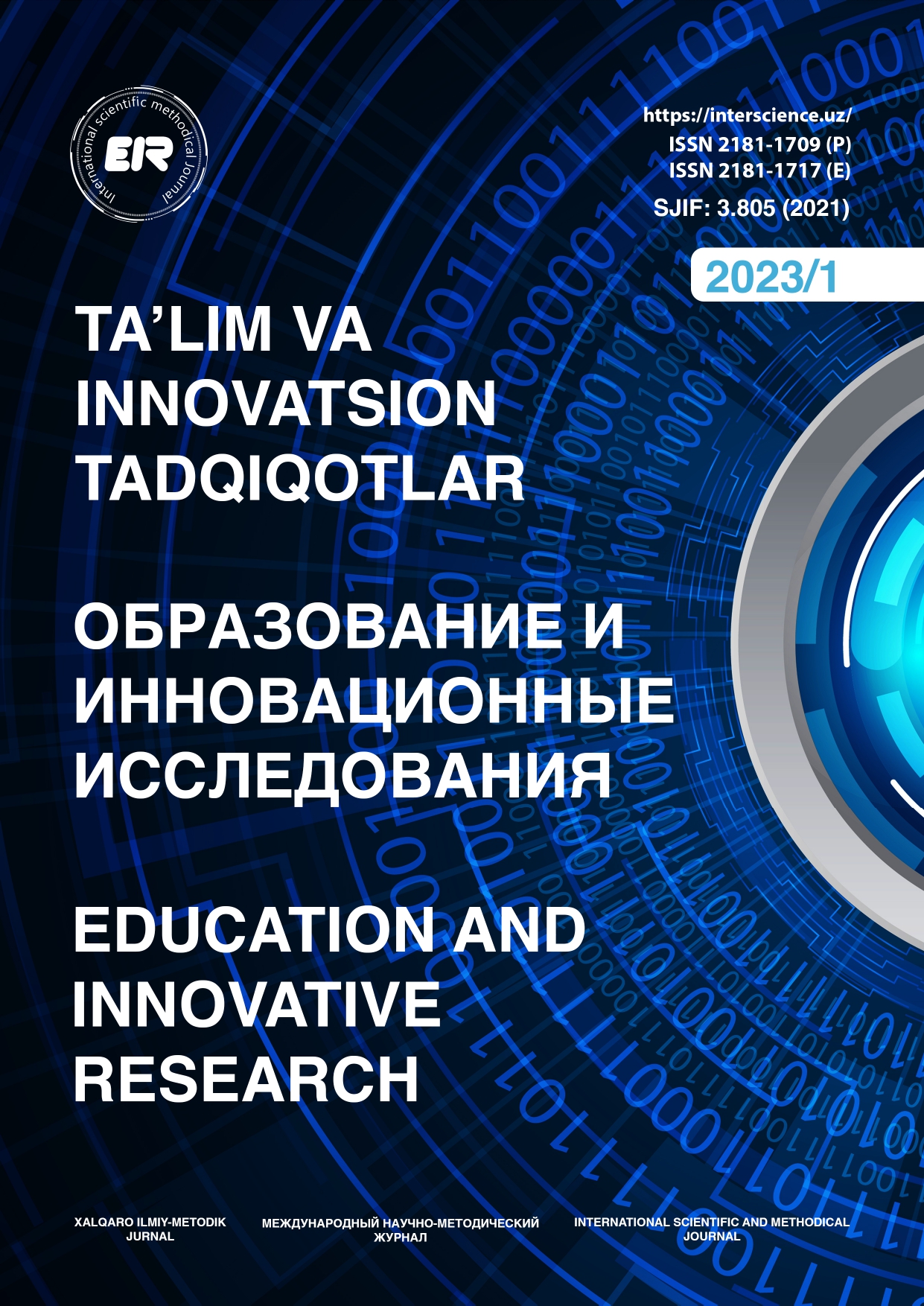IMPROVING MANAGEMENT OF TEACHERS’ ACTIVITY IN SECONDARY SCHOOLS IN DIGITAL ERA
Maxamadjanova Nozima A.Avloniy nomidagi pedagoglarni kasbiy rivojlantirish va yangi metodikalarga o‘rgatish milliy-tadqiqot institutining tayanch doktoranti
Keywords:
education, digitization, teacher, school, method, informatization, digital technologies, individual approach.Abstract
Currently, as technologies are being updated day by day, the fundamental change of the worldview of the society, adaptation to the times becomes a natural state, and an opportunity to update the education system and its management. This article describes the theoretical basis of the improvement of management through the digitization of the activities of teachers of general secondary schools. In the era of digitization, it is an important task to review the management of school teachers and develop them based on modern trends.
References
Muharlisani, L. T. et al. (2019). Teacher’s Pedagogic Competency: Implementation of 2013 Curriculum through a Sustainable Academic Supervision. International Conference on Community Development (ICCD 2019), 349(6).
Christianingsih, Endah. “Manajemen Mutu Perguruan Tinggi: Studi tentang Kepemimpinan Visioner dan Kinerja Dosen terhadap Mutu Perguruan Tinggi Swasta di Kota Bandun.” Manajerial 9, no. 18, (2011): 31-41 3. Hambali. “Kepemimpinan Visioner.” Madrasah 5, no. 1, (2012): 9-30. 4. Wong, E. M. L., & Li, S. C. (2011). Framing ICT implementation in a context of educational change: a structural equation modelling analysis. Australasian Journal of Educational Technology,
(2), 361–379 5. Badykov, I.I. (2018). Vnedrenie innovatsionnogo gosudarstvennogo servisa «elektronnoe pravitel’stvo»: trebovaniya i slozhnosti realizatsii [Implementation of the innovative public service «electronic government»: requirements and implementation difficulties]. Social’naya politika i sociologiya. 17(4(129)): 13-21. [in Russian] 6. McGovern et al., 2019 – McGovern, E., Moreira, G., Luna-Nevarez C. (2019). An application of virtual reality in education: Can this technology enhance the quality of students’ learning experience? Journal of education for business. DOI: 10.1080/08832323.2019.1703096 7. Detyna, Kadiri, 2019 – Detyna, M., Kadiri, M. (2019). Virtual reality in the HE classroom: feasibility, and the potential to embed in the curriculum. Journal of geography in higher education.
DOI: 10.1080/03098265.2019.1700486 8. McLay, Renshaw, 2019 – McLay, K.F., Renshaw, P.D. (2019). Making ‘us’ visible: Using membership categorisation analysis to explore young people’s accomplishment of collective identityin-interaction in relation to digital technology. British educational research journal. DOI: 10.1002/ berj.3565 9. Scardamalia, M., & Bereiter, C. (2006). Knowledge building: theory, pedagogy, and technology. In K. Sawyer (Ed.), Cambridge handbook of the learning sciences (pp. 97–118). New York, NY: Cambridge University Press.





